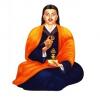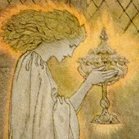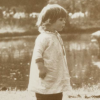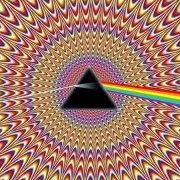Search the Community
Showing results for 'Dream'.
Found 7,591 results
-
The non-Tibetan influenced books that I have seen come most highly recommended are Waggoner's "Lucid Dreaming" and and Love's "Are You Dreaming?" For Tibetan influenced works, Charlie Morely (who is apparently endorsed by some Kagyu lama) has a book and a CD on the basics of lucid dreaming, and Andrew Holecek has a multi CD set that looks very thorough for dream yoga.
-
As a child, all the time, and sometimes be able to go back to the same dream after stirring. And flying. As an adult not so much. As I get better at this cultivation stuff I hope that will change.
-
There is another lucid dream thread here on TTBs, I added some methods which help to it awhile back .
-
Hello dream-captain, and welcome to the forums! Glad to have you aboard :-) Please take the time to read the two posts pinned at the top of this Welcome page and take a look at the forum terms and rules. This covers all you need to know when getting started. For the first week you will be restricted to ten posts per day but after that you can post as much as you like. Also, until you’ve posted fifteen times in the forums, you’ll be a “Junior Bum” with somewhat restricted access and will be allowed only two private messages per day. Good luck in your pursuits and best wishes to you, SC and the TTB team ~~~~~~~~~~~~~~~~~~~~ Special Note: all female members are more than welcome to join the discussions at our new Women’s Cultivation forum, moderated by rainbowvein and zanshin
-
I find that question often posed by missionaries as bait. When I collected pamphlets I'd find it in about a third of them. There's a wonderful wicked supposition added that THEY KNOW, what will happen and poor little you doesn't, but WAIT, because they know THE TRUTH, they can save you. Meh... If they're floating in the air or showing off there super powers maybe I'd listen if I had time, but generally I have better things to do and tend to stay and away from missionary types. edit> If the hidden assumption is the Askers know the real truth. What is their end game exactly? In some Christianity its we're in G-ds loving hands, though 'Loving' G-d has set a system where people are tortured through out eternity. Yet what is the end game of the proposed enlightenment system? What exactly happens to the Enlightened once earth is destroyed by the meteors, aliens or whatnot. What are they up to for the next couple months, next couple thousand years? I assume, if you're honest, the answer is no freakin clue, its speculation and spit balling. Course no one said theology had to provide happy endings. Who knows.. maybe folding back into universal consciousness is better then keeping a tiny dated speck of personality for eternity. Or could be the materialists are right and when the brain stops, its game over and all theisms and theories are just mankinds imaginings to combat the fear of death. On the other hand if there was an impending apocalypse in 2 weeks, I would put even greater priority on hanging out w/ those I love, my family and friends. Chill enjoy life. I'd meditate some. Maybe even dabble in substances. I don't think I'd strive too much to solve the mystery of life, rather I'd strive to appreciate and enjoy it. And when death comes, I hope to meet it as I have in some of my dream work. Face down the fear, relax and accept it, remember what's been good and compose my soul for what may be next. On the third hand, in the face of a predicted apocalypse I'd probably keep most of my assets in reserve too. In my lifetime I've heard many a prediction of apocalypse and seen the sad and slightly humorous aftermath of those who bought in and suffered the slings and arrows of nothing much happening.
-
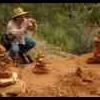
More about the Kati crystal heart channel
thelerner replied to Tibetan_Ice's topic in Buddhist Discussion
Nice link. Very generous of B. Alan Wallace to provide the public with so much information from his seminar. There 40 separate long lectures with chants and meditations there. Info from link: B. Alan Wallace 21 Aug 2014 – 16 Oct 2014 Thanyapura Mind Centre, Phuket, Thailand This eight-week retreat will focus on three of the six transitional processes, namely: the Transitional Process of Living, with teachings on śamatha and vipaśyanā, the Transitional Process of Dreaming, with teachings on dream yoga, and the Transitional Process of Meditation with teachings on Dzogchen meditation. All these teachings will be based on the text The Profound Dharma of The Natural Emergence of the Peaceful and Wrathful from Enlightened Awareness Stage of Completion Instructions on the Six Transitional Processes, an “earth terma” of teachings by Padmasambhava, revealed by Karma Lingpa in the fourteen century. The English translation of this text has been published under the title Natural Liberation: Padmasambhava’s Teachings on the Six Bardos, with commentary by Gyatrul Rinpoche and translated by B. Alan Wallace. -
--- Moderator Message --- Post 61 above contains insults and belittling language e.g. 'your borrowed and culturally grounded rat-vision is absolutely relative to your own obstruction. Padmasambhava doesn't need your squint-eyed distinctions, by the way~ as upaya is something you can only dream of. If you had any marrow in your bones, 9th, I'd slice those~ but you are an outsider, a pauper speaking of others' jewels.' Please edit your post. It's not necessary to attack the other member to make your point. The mod team are considering if a suspension is appropriate. --- Message Ends ---
-
9th said: May be true, or may not be true? Suuuuch a powerful statement as you can muster, I suppose? Since it is true there is no obstruction that can be seen by one who is squandering a lifetime waiting for a nonexistent utopia while even now East mountain walking on water has always been the perennial standard, so I must add that for you it is a fact, my dear, that your borrowed and culturally grounded rat-vision is absolutely relative to your own obstruction. Padmasambhava doesn't need your squint-eyed distinctions, by the way~ as upaya is something you can only dream of. If you had any marrow in your bones, 9th, I'd slice those~ but you are an outsider, a pauper speaking of others' jewels. ed note: add (') too "others" in last line
-
from a different perspective yes . the perspective changes but yang yin does not . i consider reicarnation just more smoke and mirrors as well my old friend . there are no souls that leave one body and go get a new one . its an illusion. when the life is snuffed out of one body it simple rejoins all life again with no past and no future no history etc. life is outside of all that . when a new body is generated , life as in singular , sticks it foot in the shoe so to speak and animation begins. life ? yes , souls, spirits, ghosts and tooth fairies ? no twin flames and angels ? pfffft. if you want, but they are only as real as that 20 year old girl wearing a short skirt , no bikini , blue eyes and a big smile the devil and satin ? smoke and mirrors. Prayers? go ahead its your illusion, you can dream up and pray to who or what ever you like . rats, cows , st jude and ali baba but Life ? yeah theres life . All this stuff around us didnt come from a buffalo fart . life is also aware of self but it deos a good job of convincing itself it doesnt . I know this from first hand experience . been there done that . side note , almost all my posts get edited for spelling errors . this one is no different
-
Fall 2014 Shamatha, Vipashyana, Dream Yoga, and the Experience of Pristine Awareness in the Great Perfection Tradition of Tibetan Buddhism http://media.sbinstitute.com/courses/fall-2014/
-
It was an absolutely lovely summer this year, the weather could hardly have been better, all my family and friends are still alive and well,… and so I can slide into autumn without too many regrets for summer’s passing. Autumn has a beauty all its own, (it’s only the thought of what comes next that often makes it a bittersweet pill.) Anyway, as a celebration of a new season with all the mob down at Tao Bums.com, I thought I would add one final story about the colourful childhood adventures that came with growing up in Corfu, Greece, in the 1930’s, by my much-loved author Gerald Durrell. It’s still just too warm and lovely outside right now for me to be able to turn my mind towards more serious spiritual beliefs. For anyone who may be wondering why I’ve added yet another piece by this author, for me it’s Durrell’s ability to experience, then transfer into words the sheer joy of living, that has kept me reading and re-reading his books for over forty years now. Perhaps, in bringing some of his most charming pieces here to this forum, that joy might well continue to spread to like-minded souls via this amazing 21st century tool of the internet. * * * The Talking Head (Extracted from ‘Birds, Beasts, and Relatives’) * * Summer gaped upon the island like the mouth of a great oven. Even in the shade of the olive groves it was not cool and the incessant, penetrating cries of the cicadas seemed to swell and become more insistent with each hot, blue noon. The water in the ponds and ditches shrank and the mud at the edges became jigsawed, cracked and curled by the sun. The sea lay as breathless and still as a bale of silk, the shallow waters too warm to be refreshing. You had to row the boat out into deep water, you and your reflection the only moving things, and dive over the side to get cool. It was like diving into the sky. Now was the time for butterflies and moths. In the day, on the hillsides where it seemed sucked free of every drop of moisture by the beating sun, you would get the great languid Swallow Tails, flapping elegantly and erratically from bush to bush; Fritillaries, glowing almost as hot and angry as a live coal, skittered quickly and efficiently from flower to flower; Cabbage Whites; Clouded Yellows and the lemon-yellow and orange Brimstones bumbled to and fro on untidy wings. Among the grasses the skippers, like little brown furry aeroplanes, would skim and purr and on glittering slabs of gypsum the Red Admirals, as flamboyant as a cluster of Woolworth’s jewellery, would sit opening and closing their wings as though expiring from the heat. At night the lamps would become a teeming metropolis of moths, and the pink geckos on the ceiling, big-eyed and splay-footed, would gorge until they could hardly move. Oleander Hawk Moths, green and silver, would zoom into the room from nowhere, and, in a frenzy of love, dive at the lamp, hitting it with such force that the glass shattered. Death’s Head Hawk Moths, mottled ginger and black, with the macabre skull and crossbones embroidered on the plush fur of their thoraxes, would come tumbling down the chimney to lie fluttering and twitching in the grate, squeaking like mice. Up on the hillsides where the great beds of heather were burnt crisp and warm by the sun, the tortoises, lizards and snakes would prowl and the praying mantis would hang amongst the green leaves of the myrtle, swaying slowly and evilly from side to side. The afternoon was the best time to investigate life on the hills, but it was also the hottest. The sun played a tattoo on your skull, and the baked ground was as hot as a griddle under your sandaled feet. Widdle and Puke were cowards about the sun and would never accompany me in the afternoons, but Roger, that indefatigable student of natural history, would always be with me, panting vigorously, swallowing his drooling saliva in great gulps. Together we shared many adventures. There was the time when we watched, entranced, two hedgehogs, drunk as lords on the fallen and semi-fermented grapes they had eaten from under the vines, staggering in circles, snapping at each other belligerently, uttering high-pitched screams and hiccups. There was a time we watched a fox cub, red as an autumn leaf, discover his first tortoise amongst the heather. The tortoise, in the phlegmatic way that they have, folded himself up in his shell, tightly closed as a portmanteau. But the fox had seen a movement and, prick-eared, it moved around him cautiously. Then, for it was still only a puppy, it dabbed quickly at the tortoise's shell with its paw and jumped away, expecting retaliation. Then it lay down and examined the tortoise for several minutes, its head between its paws. Finally it went forward rather gingerly and after several unsuccessful attempts managed to pick the tortoise up with its jaws and, with head held high, trotted off proudly through the heather. It was on these hills that we watched the baby tortoises hatching out of Their papery-shelled eggs, each one looking as wizened and as crinkled as though it were a thousand years old at the moment of birth, and it was here that I witnessed for the first time the mating dance of the snakes. Roger and I were sitting under a large clump of myrtles which offered a small patch of shade and some concealment. We had disturbed a hawk in a cypress tree nearby and were waiting patiently for him to return so that we could identify him. Suddenly, some ten feet from where we crouched, I saw two snakes weaving their way out of a brown web of heather stalks. Roger, who was frightened of snakes, uttered an uneasy little whine and put his ears back. I shushed him violently and watched to see what the snakes would do. One appeared to be following close on the heels of the other. Was he, I wondered, perhaps in pursuit of it in order to eat it ? They slid out of the heather and into some clumps of sun-whitened grass and I lost sight of them. Cursing my luck, I was just about to shift my position in the hopes of seeing them again when they reappeared on a comparatively open piece of ground. Here the one that was leading paused and the one that had been following slid alongside. They lay like this for a moment or so and. then the pursuer started to nose tentatively at the other one's head. I decided that the first snake was a female and that her follower was her mate. He continued butting his head at her throat until eventually he had raised her head and neck slightly off the ground. She froze in that position and the male, backing away a few inches, raised his head also. They stayed like that, immobile, staring at each other for some considerable time. Then, slowly, the male slid forward and twined himself round the female's body and they both rose as high as they could without overbalancing, entwined like a convolvulus. Again they remained motionless for a time and then started to sway, like two wrestlers pushing against each other in the ring, their tails curling and grasping at the grass roots around them to give themselves better purchase. Suddenly they flopped sideways, the hinder ends of their bodies met and they mated lying there in the sun, as entangled as streamers at a carnival. At this moment Roger, who had viewed with increasing distress my interest in the snakes, got to his feet and shook himself before I could stop him, indicating that, as far as he was concerned, it would be far better if we moved on. The snakes unfortunately saw his movement. They convulsed in a tangled heap for a moment, their skins gleaming in the sun, and then the female disentangled herself and sped rapidly towards the sanctuary of the heather, dragging the male, still fastened to her, helplessly behind her. Roger looked at me, gave a small sneeze of pleasure and wagged his stumpy tail. But I was annoyed with him and told him so in no uncertain terms. After all, as I pointed out to him, on the numerous occasions when he was latched to a bitch how would he like to be overtaken by some danger and dragged so ignominiously from the field of love ? With the summer came the bands of gypsies to the island to help harvest the crops and steal what they could while they were there. Sloe-eyed, their dusky skins burnt almost black by the sun, their hair unkempt and their clothing in rags, you would see them moving in family groups along the white, dusty roads, riding on donkeys or on lithe little ponies, shiny as chestnuts. Their encampments were always a squalid enchantment, with a dozen pots bubbling with different ingredients over the fires, the old women squatting in the shadow of their grubby lean-tos with the heads of the younger children in their laps, carefully searching them for lice, while the older children, tattered as dandelion leaves, rolled and screamed and played in the dust. Those of the men who had a side-line would be busy with it. One would be twisting and tying multi-coloured balloons together, so that they screeched in protest, making strange animal shapes. Another, perhaps, who was the proud possessor of a Karaghiozi shadow show, would be refurbishing the highly coloured cut-our figures and practising some of Karaghiozi's vulgarities and innuendos to the giggling delight of the handsome young women who stirred the cooking-pots, or knitted in the shade. I had always wanted to get on intimate terms with the gypsies, but they were a shy and hostile people, barely tolerating the Greeks. My mop of hair, bleached almost white by the sun, and my blue eyes, made me automatically suspect and although they would allow me to visit their camps, they were never forthcoming, in the way that the peasants were, in telling me about their private lives and their aspirations. It was, nevertheless, the gypsies who were indirectly responsible for an uproar in the family. For once I was entirely innocent. It was the tail-end of an exceptionally hot summer's afternoon. Roger and I had been having an exhausting time pursuing a large and indignant king snake along a length of dry stone wall. No sooner had we dismantled one section of it than the snake would ease himself fluidly along into the next section, and by the time we had re-built the section we had pulled down, it would take half an hour or so to locate him again in the jigsaw of rocks. Finally we had to concede defeat and were now making our way home to tea, thirsty, sweating and covered with dust. As we rounded an elbow of the road, I glanced into a small valley, and saw what, at first glance, I took to be a man with an exceptionally large dog. A closer look, however, and I realised, incredulously, that it was a man with a bear. I was so astonished that I cried our involuntarily. The bear stood up on its hind legs and turned to look up at me, as did the man. They stared at me for a moment and then the man waved his hand in casual greeting and turned back to the task of spreading his belongings under the olive tree, while the bear got down again on its haunches and squatted, watching him with interest. I made my way hurriedly down the hillside, filled with excitement. I had heard that there were dancing bears in Greece, but I had never actually seen one. This was an opportunity too good to be missed. As I drew near, I called a greeting to the man and he turned from his jumble of possessions and replied courteously enough. I saw that he was indeed a gypsy, with the dark, wild eyes and the blue-black hair, but he was infinitely more prosperous looking than most of them, for his suit was in good repair and he wore shoes, a mark of distinction, in those days, even among the landed peasantry of the island. I asked whether it was safe to approach, for the bear, although wearing a leather muzzle, was untethered. 'Yes, come,' called the man. 'Pavlo won't hurt you, but leave your dog.' I turned to Roger and I could see that, brave though he was, he did not like the look of the bear and was only staying by me out of a sense of duty. When I told him to go home, he gave me a grateful look and trotted off up the hillside, trying to pretend that he was ignorant of the whole scene. In spite of the man's assurances that Pavlo was harmless, I approached with caution for, although it was only a youngster, the bear, when it reared on to its hind legs, was a good foot or so taller than I was and possessed on each broad, furry paw a formidable and very serviceable array of glittering claws. It squatted on its haunches and peered at me out of tiny, twinkling brown eyes, panting gently. It looked like a large pile of animated, unkempt seaweed. To me it was the most desirable animal I had ever set eyes on and I walked round it, viewing its excellence from every possible vantage point. I plied the man with eager questions. How old was it? Where did he get it ? What was he doing with it ? 'He dances for his and my living,' said the man, obviously amused by my enthusiasm. 'Here, I'll show you" He picked up a stick with a small hook at the end and slid it into-a ring set into the leather muzzle the bear wore' 'Come, dance with Your papa.' In one swift movement the bear rose on to its hind legs. The man clicked his fingers and whistled a plaintive tune, starting to shuffle his feet in time to the music and the bear followed suit. Together they shuffled in a slow, stately minuet among the electric blue thistles and the dried asphodel stalks. I could have watched them for ever. When the man reached the end of his tune, the bear, as of habit, got down on all fours again and sneezed. 'Bravo !' said the man softly. 'Bravo !' I clapped enthusiastically. Never, I said earnestly, had I seen such a fine dance, nor such an accomplished performer as Pavlo. Could I, perhaps, pat him ? 'You can do what you like with him,' said the man, chuckling, as he unhooked his stick from the bear's muzzle. 'He’s a fool, this one. He wouldn't even hurt a bandit who was robbing him of his food.' To prove it he started scratching the bear's back and the bear, pointing its head up into the sky, uttered throaty wheezy murmurings of pleasure and sank gradually down on to the ground in ecstasy, until he was spread out looking almost, I thought, like a bear-skin rug. 'He likes to be tickled,' said the man. 'Come and tickle him.' The next half hour was pure delight for me. I tickled the bear while he crooned with delight. I examined his great claws and his ears and his tiny bright eyes and he lay there and suffered me as though he were asleep. Then I leant against his warm bulk and talked to his owner. A plan was forming in my mind. The bear, I decided, had got to become mine. The dogs and my other animals would soon get used to it and together we could go waltzing over the hillsides. I convinced myself that the family would be overjoyed at my acquisition of such an intelligent pet. Bur first I had to get the man into a suitable frame of mind for bargaining. 'With the peasants, bargaining was a loud, protracted and difficult business. But this man was a gypsy and what they did not know about bargaining would fit conveniently into an acorn cup. The man seemed much less taciturn and reticent than the other gypsies I had come into contact with and I took this as a good sign. I asked him where he had come from. 'Way beyond, way beyond,' he said, covering his possessions with a shabby tarpaulin and shaking out some threadbare blankets which were obviously going to serve as his bed. 'Landed at Lefkimi last night and we've been walking ever since, Pavlo, the Head and I. You see, they wouldn't take Pavlo on the buses; they were frightened of him. So we got no sleep last night, but tonight we'll sleep here and then tomorrow we'll reach the town.' Intrigued, I asked him what he meant by 'he, Pavlo, and the Head' walking up from Lefkimi. 'My Head, of course,' he said. 'My little talking Head.' And he picked up the bear stick and slapped it on a pile of goods under the tarpaulin, grinning at me. I had unearthed the battered remains of a bar of chocolate from the pocket of my shorts and I was busy feeding this to the bear, who received each fragment with great moans and slobberings of satisfaction. I said to the man that I did not understand what he was talking about. He squatted on his haunches in front of me and lit a cigarette, peering at me out of dark eyes, as inimical as a lizard's. 'I have a Head,' he said jerking his thumb towards his pile of belongings, 'a living Head. It talks and answers questions. It is without doubt the most remarkable thing in the world.' I was puzzled. Did he mean, I asked, a head without a body ? 'Of course without a body. Just a Head,' and he cupped his hands in front of him, as though holding a coconut. 'It sits on a little stick and talks to you. Nothing like it has ever been seen in the world.' But how, I enquired, if the head were a disembodied head, could it live ? 'Magic,' said the man solemnly. 'Magic that my great-great-grandfather passed down to me.' I felt sure that he was pulling my leg, but, intriguing though the discussion on talking heads was, I felt we were wandering away from the main objective, which was to acquire the immediate freehold of Pavlo, now sucking in through his muzzle, with wheezy sighs of satisfaction, my last bit of chocolate. I studied the man carefully as he squatted dreamy-eyed, his head enveloped in a cloud of smoke. I decided that with him the bold approach was the best. I asked him bluntly whether he would consider selling the bear and for how much ? 'Sell Pavlo ?' he said. 'Never ! He's like my own son.' Surely, I said, if he went to a good home ? Somewhere where he was loved and allowed to dance, surely then he might be tempted to sell ? The man looked at me meditatively puffing on his cigarette. 'Twenty million drachmas ?' he enquired, and then laughed at my look of consternation. 'Men who have fields must have donkeys to work them,' he said. 'They don't part with them easily. Pavlo is my donkey. He dances for his living and he dances for mine, and until he is too old to dance, I will not part with him.' I was bitterly disappointed, but I could see that he was adamant. I rose from my recumbent position on the broad, warm, faintly snoring back of Pavlo and dusted myself down. Well, I said, there was nothing more I could do. I understood his wanting to keep the bear, but if he changed his mind, would he get in touch with me? He nodded gravely. And if he was performing in town, could he possibly let me know where, so that I could attend ? 'Of course,' he said, 'but I think people will tell you where I am, for my Head is extraordinary.' I nodded and shook his hand. Pavlo got to his feet and I patted his head. When I reached the top of the valley I looked back. They were both standing side by side. The man waved briefly and Pavlo, swaying on his hind legs, had his muzzle in the air, questing after me with his nose. I liked to feel it was a gesture of farewell. I walked slowly home thinking about the man and his talking Head and the wonderful Pavlo. Would it be possible, I wondered, for me to get a bear cub from somewhere and rear it ? Perhaps if I advertised in a newspaper in Athens it might bring results ? The family were in the drawing-room having tea and I decided to put my problem to them. As I entered the room, however, a startling change came over what had been a placid scene. Margo uttered a piercing scream, Larry dropped a cup full of tea into his lap and then leapt up and took refuge behind the table, while Leslie picked up a chair and Mother gaped at me with a look of horror on her face. I had never known my presence to provoke quite such a positive reaction on the part of the family. 'Get it out of here,' roared Larry. 'Yes, get the bloody thing out,' said Leslie. 'It'll kill us all !' screamed Margo. 'Get a gun,' said Mother faintly. 'Get a gun and save Gerry.' I couldn't, for the life of me, think what was the matter with them. They were all staring at something behind me. I turned and looked and there, standing in the doorway, sniffing hopefully towards the tea table, was Pavlo. I went up to him and caught hold of his muzzle. He nuzzled at me affectionately. I explained to the family that it was only Pavlo. 'I am not having it,' said Larry throatily. 'I am not having it. Birds and dogs and hedgehogs all over the house and now a bear. What does he think this is, for Christ's sake? A bloody Roman arena ?' 'Gerry, dear, do be careful,' said Mother quaveringly. 'It looks rather fierce.' 'It will kill us all,' quavered Margo with conviction. ‘I can't get past it to get to my guns,' said Leslie. 'You are not going to have it. I forbid it’, said Larry. ‘I will not have the place turned into a bear pit.’ 'Where did you get it, dear ?’ asked Mother. 'I don't care where he got it,' said Larry. ‘He’s to take it back this instant, quickly, before it rips us to pieces. The boy's got no sense of responsibility. I am not going to be turned into an early Christian martyr at my time of life.' Pavlo got up on to his hind legs and uttered a long wheezing moan which I took to mean that he desired to join us in whatever delicacies were on the tea table. The family interpreted it differently. 'Ow !' screeched Margo, as though she had been bitten. 'It's attacking.' 'Gerry, do be careful,' said Mother. 'I’ll not be responsible for what I do to that boy,' said Larry. 'If you survive,' said Leslie. 'Do shut up Margo, you’re only making matters worse. You’ll provoke the bloody thing.' 'I can scream if I want to,’ said Margo indignantly. So raucous in their fear were the family that they had not given me a chance to explain. Now I attempted to. I said that, first of all, Pavlo was not mine, and, secondly he was as tame as a dog and would not hurt a fly. 'Two statements I refuse to believe,’ said Larry. ‘You pinched it from some faming circus. Not only are we to be disembowelled, but arrested for harbouring stolen goods as well.' ‘Now, now, dear,' said Mother, ‘let Gerry explain.’ 'Explain ?' said Larry. Explain ? How do you explain a bloody great bear in the drawing-room ?’ I said that the bear belonged to a gypsy who had a talking Head. 'What do you mean, a talking head ?’ asked Margo. I said that it was a disembodied head that talked. ‘The boy's mad,’ said Larry with conviction. ‘The sooner we have him certified the better.’ The family had now all backed away to the farthest corner of the room in a trembling group. I said, indignantly, that my story was perfectly true and that, to prove it, I'd make Pavlo dance. I seized a piece of cake from the table, hooked my finger into the ring on his muzzle and uttered the same commands as his master had done. His eyes fixed greedily on the cake, Pavlo reared up and danced with me. 'Oo, look!' said Margo. 'Look! It's dancing!' 'I don't care if it's behaving like a whole corps de ballet,' said Larry. 'I want the damn' thing out of here.' I shovelled the cake in through Pavlo’s muzzle and he sucked it down greedily. ‘He really is rather sweet,’ said Mother, adjusting her spectacles and staring at him with interest. ‘I remember my brother had a bear in India once. She was a very nice pet.’ 'No !' said Larry and Leslie simultaneously. 'He's not having it.’ I said I could not have it any way, because the man did not want to sell it. 'A jolly good thing too,' said Larry. 'Why don’t you now return it to him, if you have quite finished doing a cabaret act all over the tea table ?' Getting another slice of cake as a bribe, I hooked my finger once more in the ring on Pavlo's muzzle and led him out of the house. Half way back to the olive grove, I met the distraught owner. 'There he is ! There he is ! The wicked one. I couldn't think where he had got to. He never leaves my side normally, that's why I don't keep him tied up. He must have taken a great fancy to you.' Honesty made me admit that I thought the only reason Pavlo had followed me was because he viewed me in the light of a purveyor of chocolates. 'Phew !' said the man. 'It is a relief to me. I thought he might have gone down to the village and that would have got me into trouble with the police.' Reluctantly, I handed Pavlo over to his owner and watched them make their way back to their camp under the trees. And then, in some trepidation, I went back to face the family. Although it had not been my fault that Pavlo had followed me, my activities in the past stood against me and the family took a lot of convincing that, on this occasion, the guilt was not mine. The following morning, my head still filled with thoughts of Pavlo, I dutifully went into town - as I did every morning - to the house of my tutor, Richard Kralefsky. Kralefsky was a little gnome of a man with a slightly humped back and great, earnest amber eyes who suffered from real tortures in his unsuccessful attempts to educate me. He had two most endearing qualities; one, a deep love for natural history (the whole attic of his house was devoted to an enormous variety of canaries and other birds), the other that, for at least apart, of the time, he lived in a dream world where he was always the hero. These adventures he would relate to me. He was inevitably accompanied in them by a heroine who was never named, but known simply as 'a Lady'. The first half of the morning was devoted to mathematics and, with my head full of thoughts of Pavlo, I proved to be even duller than usual, to the consternation of Kralefsky who had hitherto been under the impression that he had plumbed the depths of my ignorance. 'My dear boy, you simply aren't concentrating this morning,' he said earnestly. 'You don't seem able to grasp the simplest fact. Perhaps you are a trifle overtired ? We’ll have a short rest from it, shall we ?' Kralefsky enjoyed these short rests as much as I did. He would potter out into the kitchen and bring back two cups of coffee and some biscuits, and we would sit companionably while he told me highly coloured stories of his imaginary adventures. But this particular morning he did not get a chance. As soon as we were sitting comfortably, sipping our coffee, I told him all about Pavlo and the man with the talking Head and the bear. 'Quite extraordinary !' he said. 'Not the sort of thing that one expects to find in an olive grove. It must have surprised you, I'll be bound ?' Then his eyes glazed and he fell into a reverie, staring at the ceiling, tipping his cup of coffee so that it slopped into the saucer. It was obvious that my interest in the bear had set off a train of thought in his mind. It was several days since I had had an instalment of his memoirs and I waited eagerly to see what the result would be. 'When I was a young man,' began Kralefsky, glancing at me earnestly to see whether I was listening. 'When I was a young man I'm afraid I was a bit of a harum scarum. Always getting into trouble, you know.' He chuckled reminiscently and brushed a few biscuit crumbs from his waistcoat. With his delicately manicured hands and his large, gentle eyes it was difficult to imagine him as a harum scarum, but I tried dutifully. 'I thought at one time I would even join a circus,' he said, with the air of one confessing to infanticide. 'I remember a large circus came to the village where we were living and I attended every performance. Every single performance. I got to know the circus folk quite well, and they even taught me some of their tricks. They said I was excellent on the trapeze.’ He glanced at me, shyly, to see how I would take this. I nodded seriously, as though there was nothing ludicrous in the thought of Kralefsky, in a pair of spangled tights, on a trapeze. 'Have another biscuit ?' he enquired. 'Yes ? That's the ticket ! I think I'll have one, too.' Munching my biscuit, I waited patiently for him to resume. 'Well,' he continued, 'the week simply flew past and the evening came for the final performance. I wouldn't have missed it for the world. I was accompanied by a Lady, a young friend of mine, who was desirous of seeing the performance. How she laughed at the clowns ! And she admired the horses. She little knew of the horror that was soon to strike.’ He took out his delicately scented handkerchief and patted his moist brow with it. He always tended to get a trifle over-excited as he reached the climax of a story. 'The final act,' he said, 'was the lion tamer. He paused so that the full portent of this statement could sink in. 'Five beasts he had. Huge Nubian lions with black manes, fresh from the jungle so he told me. The Lady and I were sitting in the front row where we could obtain the best possible view of the ring. You know the sort of cage affair that they put up in the ring for the lion act ? Well, in the middle of the act, one of the sections, which had not been securely bolted, fell inwards. To our horror, we saw it fall on the lion tamer, knocking him unconscious.' He paused, took a nervous sip of coffee, and wiped his brow once more. ''What was to be done ?' he enquired, rhetorically. ‘There were five huge, snarling lions and I had a Lady by my side. My thoughts worked fast. If the Lady was to be saved, there was only one thing I could do. Seizing my walking stick, I leapt into the ring and marched into the cage.’ I made just audible sounds, indicative of admiration. 'During the week when I had been visiting the circus, I had studied the lion tamer's method with great care, and now I thanked my lucky stars for it. The snarling beasts on their pedestals towered over me, but I looked them straight in the eye. The human eye, you know, has great power over the animal world. Slowly, fixing them with a piercing gaze and pointing my walking-stick at them, I got them under control and drove them inch by inch out of the ring and back into their cage. A dreadful tragedy had been averted.’ I said that the Lady must have been grateful to him. 'She was indeed. She was indeed,’ said Kralefsky, pleasedly. 'She even went so far as to say that I gave a better performance than the lion tamer himself.' Had he, I wondered, during his circus days, ever had anything to do with dancing bears ? 'All sorts of animals,' said Kralefsky lavishly. 'Elephants, seals, performing dogs, bears. They were all there.' In that case, I said tentatively, would he not like to come and see the dancing bear. It was only just down the road and, although it was not exactly a circus, I felt it might interest him. 'By Jove, that's an idea,' said Kralefsky. He pulled his watch out of his waistcoat pocket and consulted it. 'Ten minutes, eh ? It'll help blow the cobwebs away.' He got his hat and stick and together we made our way eagerly through the narrow, crowded streets of the town, redolent with the smell of fruit and vegetables, drains and freshly baked bread. By dint of questioning several small boys, we discovered where Pavlo's owner was holding his show. It was a large, dim barn at the back of a shop in the centre of town. On the way there I borrowed some money off Kralefsky and purchased a bar of sticky nougat, for I felt I could not go to see Pavlo without taking him a present. 'Ah, Pavlo's friend ! 'Welcome,' said the gypsy as we appeared in the doorway of the barn. To my delight, Pavlo recognised me and came shuffling forward, uttering little grunts, and then reared up on his hind legs in front of me. Kralefsky backed away, rather hurriedly, I thought, for one of his circus training, and took a firmer grip on his stick. 'Do be careful, my boy,' he said. I fed the nougat to Pavlo and when finally he had squelched the last sticky lump off his back teeth and swallowed it, he gave a contented sigh and lay down with his head between his paws. 'Do you want to see the Head ?' asked the gypsy. He gestured towards the back of the barn where there was a plain deal table on which was a square box, apparently made out of cloth. "Wait,' he said, 'and I'll light the candles.' He had a dozen or so large candles soldered to the top of a box in their own wax, and these he now lit so that they flickered and quivered and made the shadows dance. Then he went forward to the table and rapped on it with his bear stick. 'Head, are you ready ?' he asked. I waited with a delicate prickle of apprehension in my spine. Then from the interior of the cloth box a clear treble voice said, ‘Yes, I'm ready.' The man lifted the cloth at one side of the box and I saw that the box was formed of slender lathes on which thin cloth had been loosely tacked. The box was about three feet square. In the centre of it was a small pedestal with a fattened top and on it, looking macabre in the flickering light of the candles, was the head of a seven-year-old boy. 'By Jove !' said Kralefsky in admiration. 'That is clever !' What astonished me was that the head was alive. It was obviously the head of a young gypsy lad, made up rather crudely with black grease paint to look like a Negro. It stared at us and blinked its eyes. 'Are you ready to answer questions now ?' said the gypsy, looking, with obvious satisfaction, at the entranced Kralefsky. The Head licked its lips and then said, 'Yes, I am ready.' 'How old are you?' asked the gypsy. ‘Over a thousand years old,' said the Head. 'Where do you come from ?' 'I come from Africa and my name is Ngo.' The gypsy droned on with his questions and the Head answered them, but I was not interested in that. What I wanted to know was how the trick was done. When he at first told me about the Head, I had expected something carved out of wood or plaster which, by ventriloquism, could be made to speak, but this was a living head perched on a little wooden pedestal, the circumference of a candle. I had no doubt that the Head was alive for its eyes wandered to and fro as it answered the questions automatically, and once, when Pavlo got up and shook himself, a look of apprehension came over its face. ‘There,' said the gypsy proudly, when he had finished his questioning. 'I told you, didn't I ? It's the most remarkable thing in the world.' I asked him whether I could examine the whole thing more closely. I had suddenly remembered that Theodore had told me of a similar illusion which was created with the aid of mirrors. I did not see where it was possible to conceal the body that obviously belonged to the Head, but I felt that the table and the box needed investigation. 'Certainly,' said the gypsy, somewhat to my surprise. 'Here, take my stick. But all I ask is that you don't touch the Head itself.' Carefully, with the aid of the stick I poked all round the pedestal to see if there were any concealed mirrors or wires, and the Head watched me with a slightly amused expression in its black eyes. The sides of the box were definitely only of cloth and the floor of the box was, in fact, the top of the table on which it stood. I walked round the back of it and I could see nothing. I even crawled under the table, but there was nothing there and certainly no room to conceal a body. I was completely mystified. 'Ah,' said the gypsy in triumph. 'You didn't expect that, did you ? You thought I had a boy concealed in there, didn't you ?' I admitted the charge humbly and begged him to tell me how it was done. 'Oh, no. I can't tell you,' he said. 'It's magic. If I told you, the Head would disappear in a puff of smoke.' I examined both the box and the table for a second time, but, even bringing a candle closer to aid my investigations, I still could not see how it was possible. 'Come,' said the gypsy. 'Enough of the Head. Come and dance with Pavlo.' He hooked the stick into the bear's muzzle and Pavlo rose on to his hind legs. The gypsy handed the stick to me and then picked up a small wooden flute and starred to play and Pavlo and I did a solemn dance together. 'Excellent, by Jove! Excellent !' said Kralefsky, clapping his hands with enthusiasm. I suggested that he might like to dance with Pavlo too, since he had such vast circus experience. ''Well, now,' said Kralefsky. 'I wonder whether it would be altogether wise ? The animal, you see, is not familiar with me.' 'Oh, he'll be all right,' said the gypsy. 'He's tame with anyone. ''Well,' said Kralefsky reluctantly, 'if you’re sure. If you insist.' He took the bear stick gingerly from me and stood facing Pavlo, looking extremely apprehensive. 'And now,' said the gypsy, 'you will dance.' And he started to play a lilting little tune on his pipe. I stood enchanted by the sight. The yellow, flickering light of the candles showing the shadows of Kralefsky's little hump-backed figure and the-shaggy form of the bear on the wall as they pirouetted round and round and, squatting on its pedestal in the box, the Head watched them, grinning and chuckling to itself. *
-

Avoiding wet dreams / nocturnal emissions
exorcist_1699 replied to Vantage's topic in General Discussion
In fact : 1) Wet dream does not necessarily lead to nocturnal emission if all or most of your jing (sperm) are already transformed to qi; 2)Without wet dream, you still can have your jing lost in night time . Knowing the Time and change of yin and yang is always important .Before reaching the pre-heavenly level, you are still entangled by the forces of yin/yang , here , concretely speaking , movement of the moon and sun . -
gung up, cross train, gung down into sleep. seek vibratory states between wake and sleep. It will start you in the direction of dream lucidity allowing "free will" to take hold in the randomness of the dream state which can be knee jerk, compulsive and full of "go to" habit patterns...
-
Has anyone read Bradford Keeney's new book, "Shamanic Christianity"? I'm quite curious since he describes in his other books how he has a spontaneous samadhi vision after a prolonged music-charismatic upbringing. Most people still rely on Christianity subconsciously when they enter into shamanic practice and therefore just repeat the same ritual-conceptual gimmicks.... Yeah I've been listening to "ECHOES OF THE FOREST" all night -- it's an amazing Pygmy c.d. and it's very similar but not quite as intense as NAMBIA: MUSIC OF THE JU'HUANSI BUSHMEN or close to that spelling. So I had to special order both of these and the later is the real thing -- intense trance dance music that was the original shamanism from 10,000 BCE to 80,000 BCE and older. I just finished the book NORTH TO THE NIGHT: A YEAR IN THE ARTIC ICE by Alvah Simon (1999). He has spent his life living with indigenous cultures and this book is the climax of that training. He has a precognitive dream about this artic fox and then he actually stands right up to a huge polar bear that amazingly spares his life. The book is full of near encounters with death -- all true and his love for life is really powerful. He lived alone on a boat in the Artic and almost went insane but pulled through somehow. As he reports the Inuit have this "Drum Song" that was banned by the Danes but the Inuit still practice dream songs, just like the aborigines, literally resonating with the consciousness of reality that creates life in Nature.
-
Ah, eloquent bullying! How deprived were we all of its multiple spiritual benefits in junior high, when all our resident bullies were tongue-tied and dumb and could only throw a pathetic physical punch in the face, not a verbal masterpiece! How refreshing, in the age of the internet forums, to finally find the bullying style we could only dream of experiencing when all our interactions with peers were in the flesh! Now that we all have discorporated (well... at least for purposes of online interactions...), its time has come. Have a blast of nostalgia and reminisce of the good old days when all you needed to know about life was, defer to the bully and you'll be safe! Now you don't even have to give him your lunch money, just your subservient comments (or a wide berth when the bully wants to make a speech you are deemed unworthy to comment on) and you'll be fine! It's like having your pre-puberty, new and improved, at your fingertips! Jolly good fun!
-

Understanding Buddhist Ethics: Study of Jamgon Kongtrul's Treasury of Knowledge
C T replied to C T's topic in Buddhist Textual Studies
The Ethics of the Mind of Awakening The focus of the commitments of the mind of awakening is the training to be followed on the bodhisattva path. As these commitments are centred on the awakening mind itself, its causes, nature, varieties (the aspiring and venturing, the relative and ultimate), and so forth are explained in detail before the training itself is described. The actual cultivation of the awakening mind, attended by specific points of training, is presented from the perspective of the lineage of the profound view, which was inspired by Manjushri and transmitted to Nagarjuna, Shantideva, and others, and the magnificent deeds lineage, which was inspired by Maitreya and transmitted to Asanga, Chandragomin, Atisha, and others. These two systems are basically the same, and certain aspects of training are common to both. The common training includes the three forms of ethics for the bodhisattva, which are to shun non-virtue, acquire wholesome qualities, and work for the benefit of others, and the implementation of the six perfections: generosity, ethics, patience, effort, meditation, and wisdom. Nagarjuna's system allows anyone who is willing and sufficiently intelligent to take the commitments of the aspiring and venturing awakening minds simultaneously, either in front of a master or alone in the imagined presence of buddhas and bodhisattvas. As long as one preserves the mind that aspires to awaken, the commitments are not lost. A damaged commitment can be restored in a dream through supplication to the bodhisattva Akashagarbha; the bright trainee restores damaged commitments through the understanding of the unborn nature of things. The points of training are followed according to one's ability, and the commitments are taken for a period as long as one estimates one can safeguard them. In Asanga's system, only a person who holds one of the seven sets of personal liberation vows is entitled to assume the awakening-mind commitments, and such a person does so gradually (in different ceremonies), first accepting those of aspiration and then, once he or she has gained proficiency, those of venturing. It is recommended that one assumes the commitments in the presence of a qualified master. If a major infraction has been committed with great emotional involvement, the commitment is deemed to be lost and must be taken anew. (Here, Kongtrul Rinpoche adds an enigmatic note from the great Dzogchen master Longchenpa, which says that the commitment, once it has deteriorated, cannot be retaken more than three times.) The infraction should be confessed in the presence of vow holders. According to this lineage, the trainee must safeguard all of the points of training from the very beginning and must promise to keep the commitments until he or she attains enlightenment, not just for a selected period of time. Nagarjuna's system seems more lenient and less influenced by monasticism than that of Asanga, whose points of training are more complex. Presumably, differences in the two traditions stem from their different emphases: the profound view lineage stresses the knowledge aspect of the path; the lineage of magnificent deeds, the conduct, or method, aspect. Historically and psychologically, the bodhisattva's path is halfway between the paths of renunciation and transformation. The peacock whose feathers grow more colorful as a result of eating poison symbolizes the bodhisattva, who remains unpolluted and grows more radiant as his or her involvement in the world deepens. Accordingly, the Cluster of Jewels Scripture says: Just as the paddy and cane-sugar fields are nurtured by the ordure of the village, likewise, the sprout of the awakening mind is nurtured by the ordure of the emotions of a bodhisattva. Such images clearly show that the Universal Way transcends the Individual Way's form of renunciation, which regards "objects of desire...as poisonous leaves." This transcendence of strict renunciation holds the seed of the principle of transformation, which is developed to its fullest extent in tantra. The Universal Way prescribes a set of personal liberation vows that are not radically different from those of the Individualists. Because Universalists are distinguished for their noble intention of seeking enlightenment in order to serve all living beings, nevertheless, there is a fundamental difference in principle between their form of observance and that of the Individualists. Moreover, since the philosophical trends underlying the Universal Way stress the selflessness of phenomena and, in particular, the Centrists speak of the non-reality of all appearances, how could morality, or ethics, in the bodhisattva path be asserted as absolute rather than as a variable factor dependent on conditions? The Universal Way therefore exhibits a flexible approach to the personal liberation vows and goes so far as to say that a bodhisattva may engage in the seven unwholesome actions of body and speech if motivated by love and compassion. As Shantideva says: The Compassionate One, in his broad vision, Gave permission even for what is prohibited. Owing to its focus on mental disposition, the ethics of the awakening mind, if damaged, can be renewed or repaired by the bodhisattva, just as a golden vessel can be repaired by a skilled goldsmith. Next -- The Ethics of the Awareness Holder -
To be, or not to be...is a false duality. Valid only within a frame of reference.. But outside of one... There is no such thing as existing...or not existing. Only "existing." An example of this is a thought in your mind, a dream, a video game playing on your computer screen. Do any of these truly exist...or not...or...? What is the word between yes and no? What is the Middle Way, between all binary boundaries? How can infinity even have boundaries?
-
Now reading book 4 - The Fall, from the Joseph Communications. Also reading, Make Us Dream, a book written by football fans of Liverpool FC, who play in the English Premier League; it is a game by game account of Liverpool's season, very entertaining! This is my light reading matter. The book is part authored by my friend's son John Gibbons.
-
There's very few matriarchal tribes left -- I sometimes think I should join one of them, or else there's no practicing what I believe in. The one I have in mind, which is part of what the Chinese government lumped together as the Miao people, is being "modernized" in a hurry so now their ways are understood by tourists as their women offering free sex, which is nowhere near the truth... but I guess if I want to get to the still surviving traditional (real human) ways I'd have to hurry, the overlords are making their move... That tribe is interesting in that no one cares who the father of the child is because women take as many husbands as they like, there's no stigma attached to starting or dissolving any of these liaisons, highly selective but never saddled with any obligations of exclusivity -- and no social or material repercussions of doing as the woman sees fit because all property is inherited matrilineally, by the youngest daughter... And according to a Chinese writer who described her mother's life with the Miao, teenage boys of the tribe dream of attracting an older woman, the way it's always been throughout our true, matriarchal history -- for how else could they learn the real, cultivational rather than recreational sex?.. We used to be a matriarchal species for 99.9% of our history. If anyone thinks it was unfair and "unequal" (if we were supposed to be equal, nature would have us propagate asexually like amoebas do, or switch sexes in mid-life like pumpkins... yes, all pumpkins were created equal, but not us -- nature gave us sexual reproduction and she gave the womb to half the species only -- so matriarchy is what she did to us, and whoever undid this was not of nature, was not natural, and did something against human nature) -- consider the fact that we had no wars while at it, no degenerative disease, no crime, no slavery, no polluted environments, no poverty, no famines... what we did have was a universal planet-wide cult of the Goddess, the one and only divine power recognized all over this earth, and it was the cult of life itself. Life on earth was perceived as constant ongoing happiness and equated to the feminine principle -- and while it was understood as such, life on earth was good for everybody, men and women. Which is one reason (out of much circumstantial evidence I've been collecting over the years) I believe that patriarchy was not only an artificial installation by the Intervention but a fundamental one at that -- it's not indigenous to our species, it's got to have been artificially implanted and cultivated to take root. Which it was and which it did. It won't be easy to uproot, but the goal of the original, unpolluted by Intervention, taoist proper cultivation, for both men and women, has always been just that and nothing but. What do you think "return to the Way" is about? Who do you think tao "the Great Mother" is?.. I don't expect the general population to radically change their perceptions anytime soon, after thousands of years of manipulative social engineering, but anyone who touches taoism from any angle must realize that your cultivation will all be for naught unless you get this one simple idea straight: to return to the Way is to return to the way of nature, Goddess, tao, the Great Mother... and none of these are guys. However you go about it, if you offend the Goddess by offending the Woman, you can never approach the Way no matter what else you do or don't do.
-
I woke up with a concept on my mind this morning. When we develop as fetuses, the input we receive - other than our issuance of a perfectly enlightened spirit - is that of heredity, of genetics. Of course our perfectly enlightened spirit starts deteriorating the moment we start getting less-than-enlightened input from our well-meaning parents and teachers. But it occurs to me that the hereditary traits are nothing more than crystallized karma from our ancestors. This, to me, explains how everything is actually Here and Now. Our ancestors are physically within us all the time - or the essence of their lives, the concentration of their experiences. This is passed to us through the genes. Each generation has an opportunity to change the karma of not only themselves, but also the (seemingly) past actions of our ancestors. I've certainly read this before in books, but never actually had the Aha! until this morning. Must've been a dream I don't remember. What an odd and yet wonderful system this is. And how very brilliant. Does anyone else have thoughts on this?
-
Chuang Tzu had a few words to say that may be of interest:- The True men of old did not dream when they slept, had no anxiety when they awoke, and did not care that their food should be pleasant. Their breathing came deep and silently. The breathing of the true man comes from his heels, while men generally breathe from their throats. When men are defeated in argument, their words come from their gullets as if they were vomiting. Where lusts and desires are deep, the springs of the Heavenly are shallow. The True men of old knew nothing of the love of life or of the hatred of death. Entrance into life occasioned them no joy; the exit from it awakened no resistance. Composedly they went and came. They did not forget what their beginning had been, and they did not inquire into what their end would be. They accepted (their life) and rejoiced in it; they forgot (all fear of death), and returned (to their state before life). Thus there was in them what is called the want of any mind to resist the Tâo, and of all attempts by means of the Human to assist the Heavenly. Such were they who are called the True men. Being such, their minds were free from all thought; their demeanour was still and unmoved; their foreheads beamed simplicity. Whatever coldness came from them was like that of autumn; whatever warmth came from them was like that of spring. Their joy and anger assimilated to what we see in the four seasons. They did in regard to all things what was suitable, and no one could know how far their action would go.
- 6 replies
-
- 11
-

-
Mind is one, unborn. Therefore there is no am, not because of an absence of a relativistic notion pertaining to nonexistence of "other", but because no thing is the rule. In fact, the quality of otherness of the homeland of nothing whatsoever is a device of taoist alchemic process. Recognition of reality being flesh and blood entry into the inconceivable mystery of reality is this very no thing being the essence of creation and its evolution in terms of time. The world is you. As such, there is no separate nature to act on. There are no two sides of the same coin. The mystery is whole, undifferentiated. Seeing reality is not apart from delusion; authentic permanent experience of the real is by virtue of delusion's evolution. Seeing delusion as delusion is reality. Seeing delusion as reality is delusion. Stepping off the cliff and accepting one's function, who would dare to act on one's own behalf? Selfless adaption to everyday ordinary situations is matching one's potential to creation, therefore one's actions do not admit of one's own power. This is enlightening activity. It's a mystery. Effective cultivation of the empty field is deep plowing through unified sameness void of ideas of self and other. Difference is undeniable, sameness is relative to other, not the self. The way depends on other, adaption is up to the self. There is no fixed pattern. Seeing reality as is, the worldly dream partakes of true reality because we personally bring the power to the fore by our own impersonal adaptivity. We come to radiate the virtue of enlightening qualities because gradual refinement of the human mentality becomes the abode of the tao. The expression of the power of tao is its virtue, people's inherent enlightening being.
-

Proving Breathless State to Medical Community
Satya replied to SecretGrotto's topic in General Discussion
Spotless, with love, no malice, but to me stating that someone's statement is "utterly naive" borders on insult. Would you agree? Ego is the only thing that can be insulted, so this is obviously ego speaking, but I do find this a tad insulting, and unnecessary. (Something applicable here that I should work on, but still: 2. Don't Take Anything Personally Nothing others do is because of you. What others say and do is a projection of their own reality, their own dream. When you are immune to the opinions and actions of others, you won't be the victim of needless suffering. ~ Don Miguel Ruiz) Additionally, I never actually said that "their there should not be secret teaching that is reserved for certain levels". I was stating that by and large I think that secrecy is a bad thing: And you sort of agree that a lot is already out there: Yes, of course, I agree; there's plenty out there. Just going by Non-Dual Self inquiry traditions there's enough, and none of that's secret. However if you're approaching it from another position then the secrets and gaps in between information muddies up the viewpoint to a certain extent for some approaches. If you're approaching it from an energetic approach then the secrecy can lead to problems, disparities, and create a situation where due to the secrecy between different traditions, disparities arise, underlying similarities are missed and people can end up not knowing where to go, what's legitimate. If information is open then you can verify a practice/school by going on information of what are agreed upon to be the proper approaches. I personally wasn't talking about the magic side of things, so in THIS particular area I cannot comment, because I have not explored it, and have not professed to. But still, in that case, and in all cases, there's already so much out there now that having little bits/gaps of secrecy seems to be a potential source of problems, you know? It's like having a driving manual being released, having loads of driving manuals released, but loads of them missing important information like how to slam on the brakes (and it was John Dalberg-Acton who said it, and I don't think he was an idiot, it's a brilliant quote ; I used it in a piece of writing I was doing the other month). I am primarily referring to spiritual practices re: secrecy (which I think was inferred, but I didn't state so, so fair enough). Energy work and meditation. I cannot comment on magic, but, I think the point remains: -

How does all of this Neidan/Neigong/Qigong/Energy stuff relate to Non-Dual Truth and Enlightenment?
thetaoiseasy replied to Satya's topic in Daoist Discussion
The soul is a piece of a energy. It can contain ego. But it doesn't have to. People often speak of reincarnation. But what is the substance that is reincarnated? To a Taoist, the reincarnated substance is just soul energy still vibrating in the realm of yin and yang -- the sphere of the changing truth. The ultimate goal of Taoist practices is to reach the level of the unchanging truth -- that is, to merge one's soul energy with the Mother Universe. But people do not fly into the sky overnight -- there are no shortcuts. Truly, most cultivators are just at the very beginning stages of cultivation. And they may mistake an intellectual "all is empty" musing for real achievement, or gravitate towards a psychological approach. But that cannot begin to touch the spiritual heights our Taoist forefathers left us with. In their writings, they spoke of complete internal engineering of body, mind, and spirit. Truly, when the body is not transformed, one cannot even begin to speak of non-duality. It is a mere pipe-dream. So the body must be first transformed, until desire is refined to jing. The mind must also be transformed, until ego and mental confusion is refined to chi. The spirit must be transformed, until all sense of self is dissolved to light. This is energetic transformation wherein the light of our soul, becoming brighter and brighter with cultivation, pierces the darkness we have created for ourselves. The jing-chi-shen-Te-Tao model elucidates this point, but it confuses some people because of esoteric terminology. More plainly put, it describes a step-by-step jettisoning of all the trashes the soul has accumulated in this world. We cannot take any our conceptions, ideas, and beliefs with us. With refinement, the crude material of our body can be sublimated to pure light and higher spiritual energy. Our soul becomes lighter and lighter. After the cleansing process, our soul contains the essence of our life, our spiritual nature. Our spiritual nature is an energetic copy of the universal nature. Seeing this, what duality can still exist?- 33 replies
-
- 4
-

-
- Advaita
- Non-Duality
-
(and 4 more)
Tagged with:
-
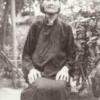
The three realms and meditative quiescence, psychic powers.
BaguaKicksAss replied to Tibetan_Ice's topic in Buddhist Discussion
I've always found that the more "real" dreams are the ones to be aware of and keep track of as they are us, well another part of us, getting stuff done in other planes/places. That's how I see it anyways. I think that what we think of as the real world is only a tiny tiny slice things. I think the dream world is yet another slice. We are closed off to so much all the time. Less so when we allow it to all crumble of course. Personally I have a difficult time allowing the crumbled what I think of this physical reality, to stick around. I get all stressed out and do mundane stuff for awhile .

